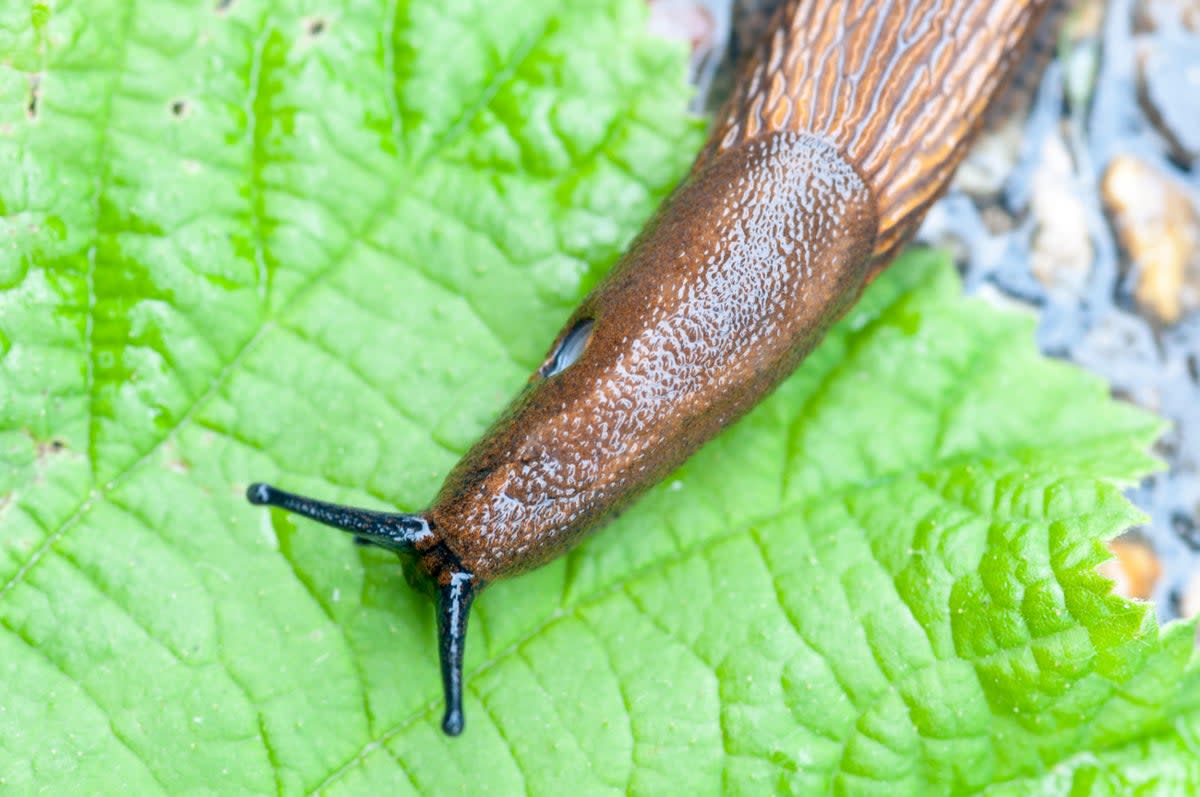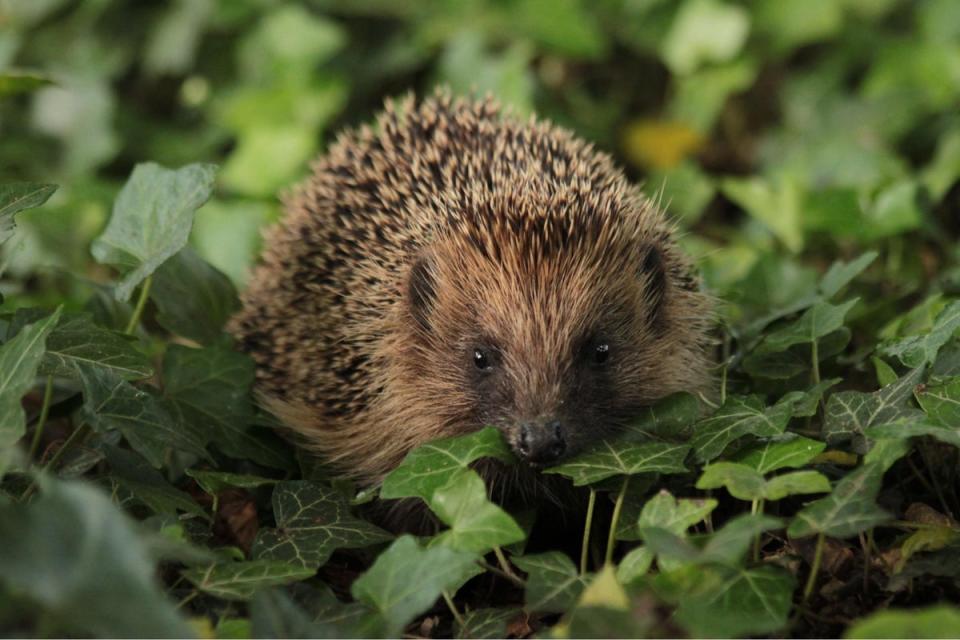Slugs and snails ruining your garden in the wet weather? Here’s the best ways to stop them

Slugs are wreaking havoc across British gardens as the wet weather continues into summer 2024.
Gardening legend Alan Tichmarsh has compared them to bed bugs, admitting he chucks them over his fence to a neighbour as part of “an arrangement”.

But if your neighbour wouldn’t like that, here’s how best to tackle those mischievous molluscs:
Make your garden a welcoming habitat for wildlife
Remember hedgehogs are your friends. If possible leave a perfect size hole for the mammals so they can come through and sweep up those slugs for you.

Plant a tree, install a bird nesting box or leaving fruit to attract birds will also help attack slugs from the air.
Expert Charles Dowding says leaving soil undisturbed allows other slug predators, such as toads and beetles, more chances to increase their numbers. Carob and Common Ground beetles can eat a lot of slug eggs and baby slugs.
Dr Hayley Jones, the Royal Horticultural Society’s principal entomologist, told The Times gardeners should install a small wildlife pond if they can to encourage frogs and toads to move there.
She said: “These are some of the many predators that can help keep slug and snail populations in balance in a wildlife friendly garden.”
Hunt them down one by one
If you don’t mind getting your hands dirty collecting slugs immediately after it has rained or gone dark will take care of the critters.
The RHS suggests releasing them in a local park or woodland and more than 20 metres away — or the snails are likely to return to your garden.
Nematodes
If you prefer the hands-off approach nematodes are a natural organic pest control which is also environmentally friendly.
Slug nematodes are microscopic, transparent worms, which feed and multiply inside the slug, secreting bacteria which eventually kil it. Slug nematodes are found naturally in the soil, by applying these you are just topping up. Apply six weeks before planting your garden for best effect.
Are slug pellets effective?
Lots of people reach for slug pellets as a cheap, nuclear option to take them out but don’t realise they can kill other wildlife too.
They contain either an agent which paralyses the slugs (metaldehyde) or a poison (methiocarb).
There will be a collection of slugs in an area all around the pellet which are still alive, but can’t move.
They will kill fish if any get into your pond and they are poisonous to humans, pets and birds. Thrushes and hedgehogs like slugs; if they eat too many they will also be dead within a few hours.
Coffee Traps
The caffeine in coffee has been found to keep slugs and snails at bay.
Many coffee shops offer customers grounds from their machines free of charge, and spent coffee can be used as a mulch or to improve compost. The RHS says this is within the law, but a gardener who uses coffee to kill or deter a slug could fall foul of the regulations and, in theory, face heavy fines.
Garlic spray for slugs
The French have blended garlic and snails and offered it up as the pinnacle of cuisine for generations. But scientists have shown that garlic can also work as a slug and snail repellent for the garden.
An eco-friendly pesticide based on garlic oil has been shown to drive slugs and snails to distraction, says Gordon Port, a biologist at Newcastle University.
“It is not clear how it works. All we know is that a barrier of garlic oil will cause slugs and snails to turn around and head the other way. If they can’t escape from it, it will kill them. It seems to cause an overproduction of their mucus, so effectively they dry up.”
And finally... eat them?
In a particularly disturbing 2009 episode of River Cottage, TV chef Hugh Fearnley-Whittingstall came up with one rather unappetising use for the pesky creatures – eating them. However, Dr Stuart Bailey, a malacologist (an expert in molluscs), said he would not recommend this.
He warned: “There is a slight risk of parasite infection from eating slugs, and there have been a few recorded cases in Japan of people contracting very nasty illnesses after eating them. The problem is that slugs like to feast on animal faeces, which is why you can get parasites from them. Even when cooked, a slight risk remains.”
He added that the danger of parasites could be removed if slugs were farmed in the way snails are, to control their diet.


